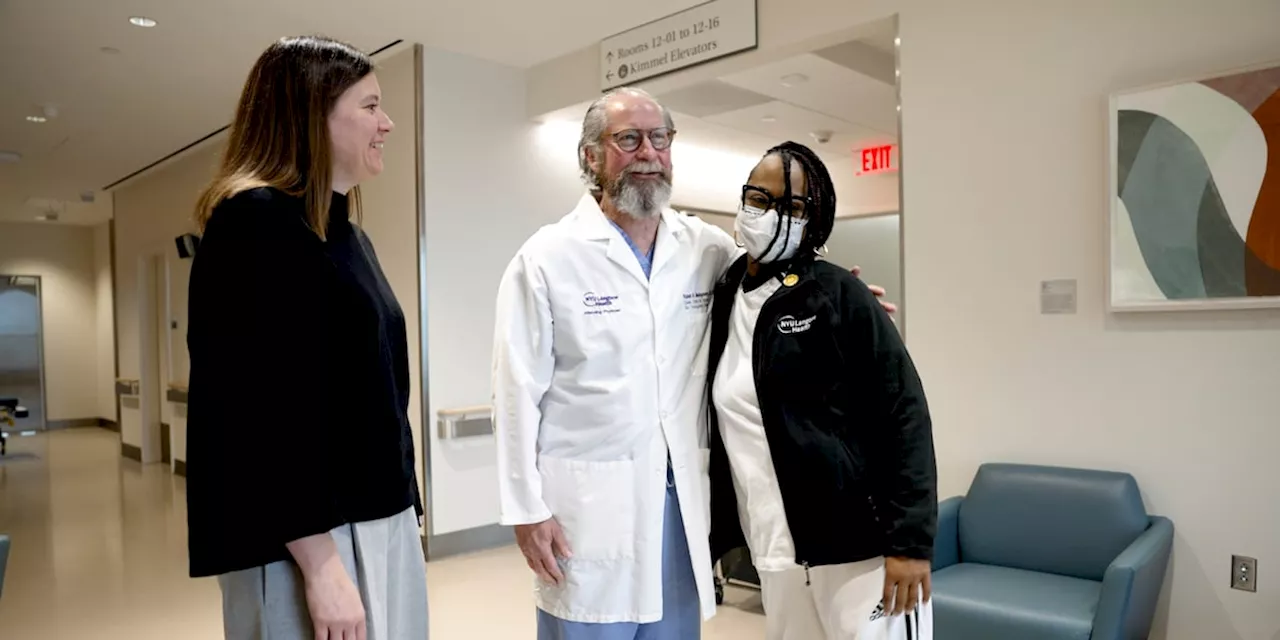Towana Looney, 53, received a genetically modified pig kidney last month, marking a significant advancement in xenotransplantation. The surgery, which freed her from eight years of dialysis, is considered a crucial step towards formal studies expected to begin next year. Looney's recovery is progressing well, and while the pig kidney could potentially fail, it offers a beacon of hope for the thousands awaiting kidney transplants.
last month that freed her from eight years of dialysis, the latest effort to save human lives with animal organs.
Pig kidney recipient Towana Looney stands with transplant surgeons Dr. Jayme Locke, left, now of the U.S. Health Resources & Services Administration and Dr. Robert Montgomery of NYU Langone Health, center, on Dec. 10, 2024, at NYU Langone Health, in New York City. Looney is recuperating well after her transplant, which was announced Tuesday.
Looney donated a kidney to her mother in 1999. Later a complication during pregnancy caused high blood pressure that damaged her remaining kidney, which eventually failed. It’s incredibly rare for living donors to develop kidney failure although those who do are given extra priority on the transplant list.
Those disappointing outcomes didn’t dissuade Looney, who was starting to feel worse on dialysis but, Locke said, hadn’t developed heart disease or other complications. The FDA eventually allowed her transplant at NYU, where Locke collaborated with Montgomery.
Xenotransplantation Organ Transplant Kidney Failure Pig Kidney Medical Breakthrough
United States Latest News, United States Headlines
Similar News:You can also read news stories similar to this one that we have collected from other news sources.
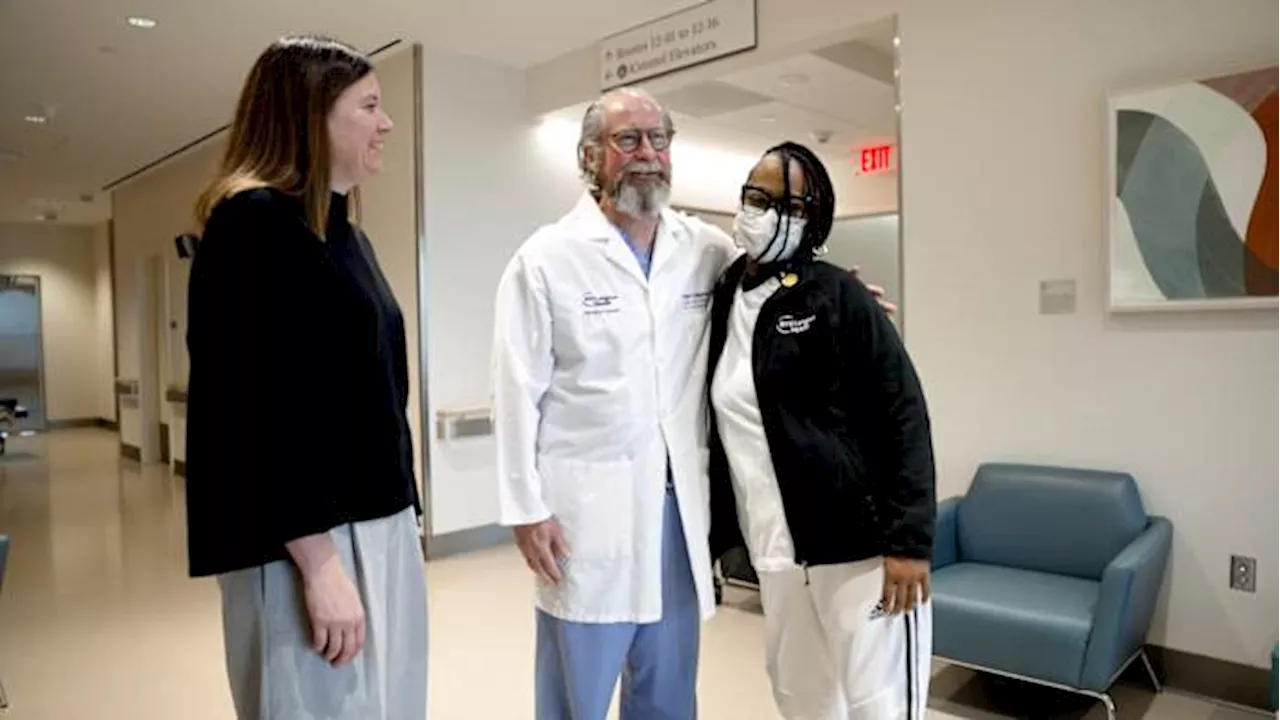 Pig Kidney Transplant Recipient Towana Looney Celebrates Milestone with SurgeonsTowana Looney, who received a groundbreaking gene-edited pig kidney transplant at NYU Langone Health, marked a significant milestone with a visit from her surgeons, Dr. Jayme Locke and Dr. Robert Montgomery. Photos capture Looney's meeting with the medical team, highlighting the success of the innovative transplant.
Pig Kidney Transplant Recipient Towana Looney Celebrates Milestone with SurgeonsTowana Looney, who received a groundbreaking gene-edited pig kidney transplant at NYU Langone Health, marked a significant milestone with a visit from her surgeons, Dr. Jayme Locke and Dr. Robert Montgomery. Photos capture Looney's meeting with the medical team, highlighting the success of the innovative transplant.
Read more »
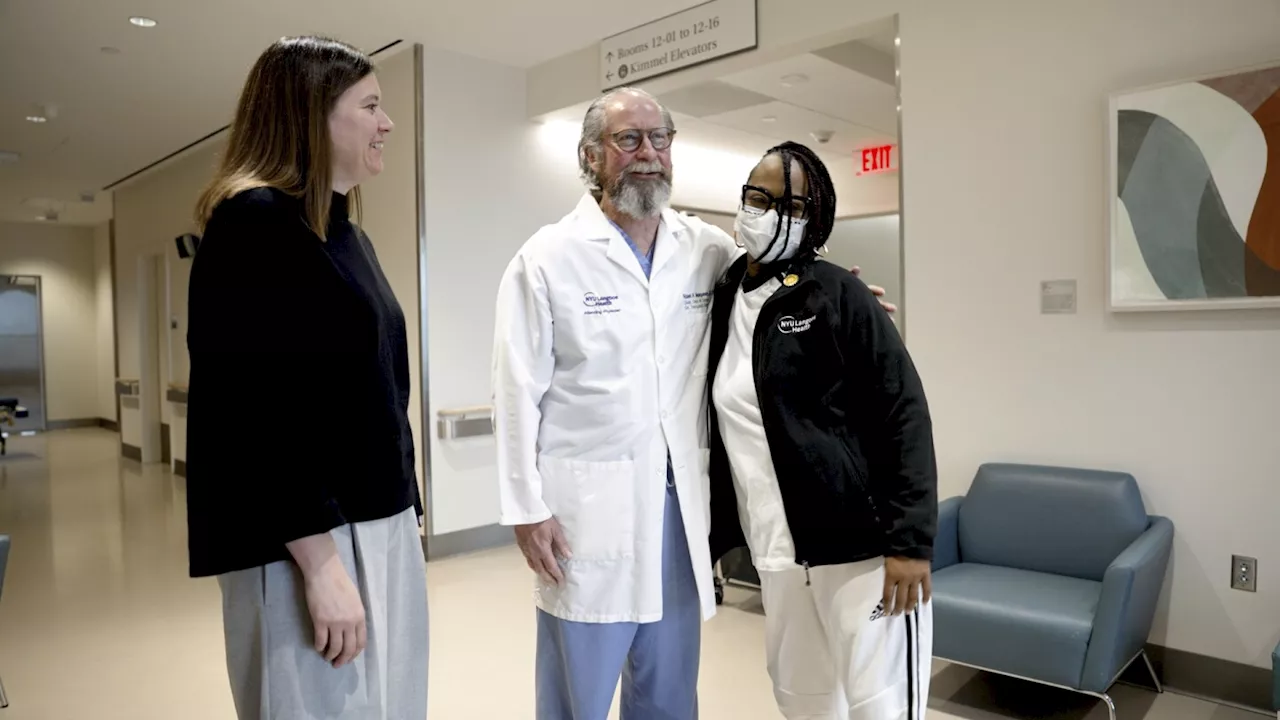 An Alabama woman is doing well after the latest experimental pig kidney transplantAn Alabama woman received a pig kidney transplant last month and is free from dialysis for the first time eight years. Towana Looney is the fifth American given a gene-edited pig organ in a quest to make animal-to-human transplants a reality. Importantly, she wasn’t as sick as prior patients who received pig kidneys or hearts.
An Alabama woman is doing well after the latest experimental pig kidney transplantAn Alabama woman received a pig kidney transplant last month and is free from dialysis for the first time eight years. Towana Looney is the fifth American given a gene-edited pig organ in a quest to make animal-to-human transplants a reality. Importantly, she wasn’t as sick as prior patients who received pig kidneys or hearts.
Read more »
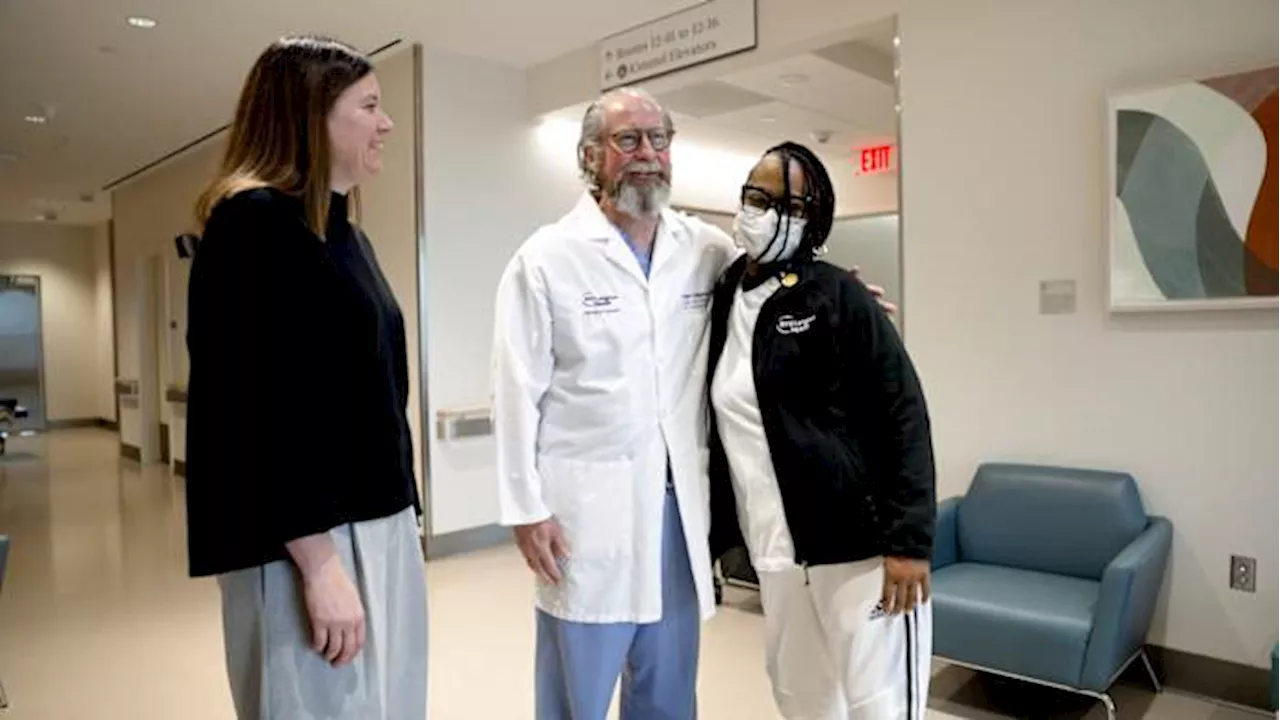 Pig Kidney Recipient Visits Surgeons After Historic TransplantTowana Looney, recipient of a gene-edited pig kidney, visited her surgeons at NYU Langone Health in New York City. The groundbreaking transplant occurred on November 25, 2024, marking a significant advancement in medical science.
Pig Kidney Recipient Visits Surgeons After Historic TransplantTowana Looney, recipient of a gene-edited pig kidney, visited her surgeons at NYU Langone Health in New York City. The groundbreaking transplant occurred on November 25, 2024, marking a significant advancement in medical science.
Read more »
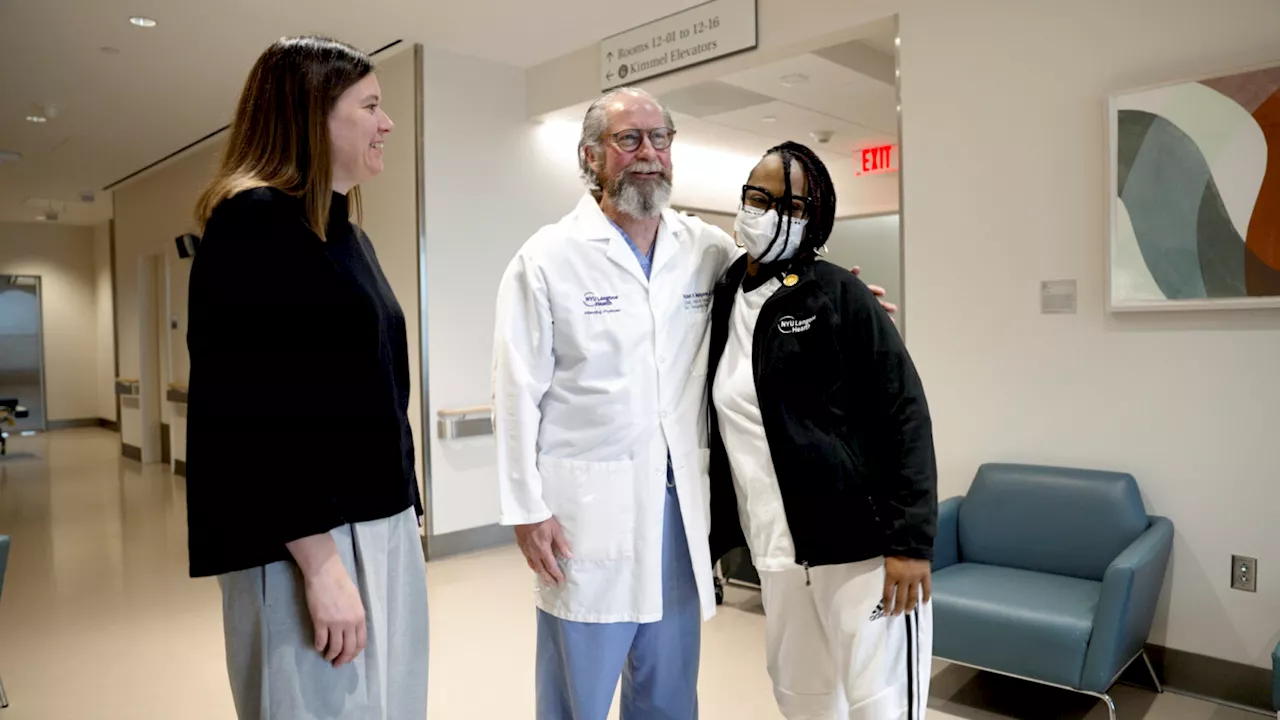 Alabama Woman Makes History with Successful Pig Kidney TransplantTowana Looney, a 53-year-old woman from Alabama, has become the fifth American to receive a gene-edited pig kidney transplant, marking a significant milestone in xenotransplantation research. Looney's surgery, conducted at NYU Langone Health, has been hailed as a success, with the patient recovering well and experiencing a renewed sense of hope. This groundbreaking procedure holds immense promise for addressing the critical shortage of human organs for transplantation.
Alabama Woman Makes History with Successful Pig Kidney TransplantTowana Looney, a 53-year-old woman from Alabama, has become the fifth American to receive a gene-edited pig kidney transplant, marking a significant milestone in xenotransplantation research. Looney's surgery, conducted at NYU Langone Health, has been hailed as a success, with the patient recovering well and experiencing a renewed sense of hope. This groundbreaking procedure holds immense promise for addressing the critical shortage of human organs for transplantation.
Read more »
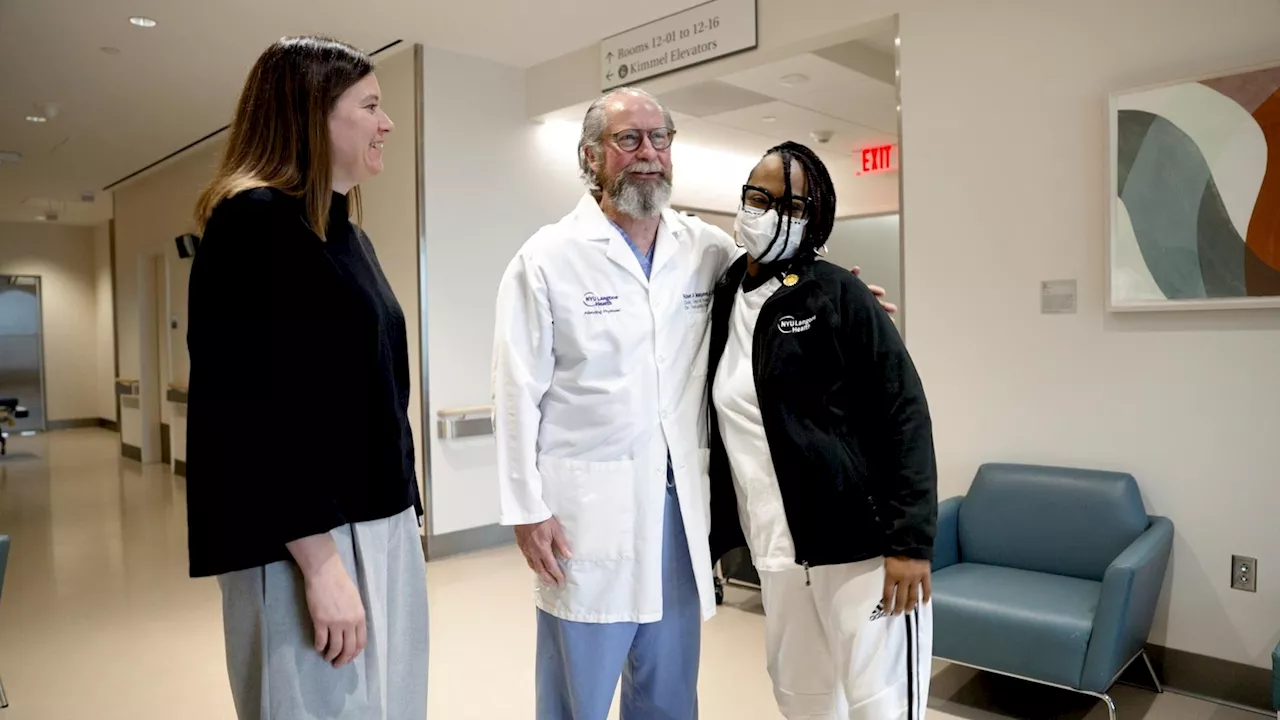 Alabama Woman Receives Pig Kidney Transplant, Free from DialysisTowana Looney, a 53-year-old woman from Alabama, has successfully received a pig kidney transplant, marking a significant milestone in xenotransplantation. This groundbreaking procedure has freed her from eight years of dialysis.
Alabama Woman Receives Pig Kidney Transplant, Free from DialysisTowana Looney, a 53-year-old woman from Alabama, has successfully received a pig kidney transplant, marking a significant milestone in xenotransplantation. This groundbreaking procedure has freed her from eight years of dialysis.
Read more »
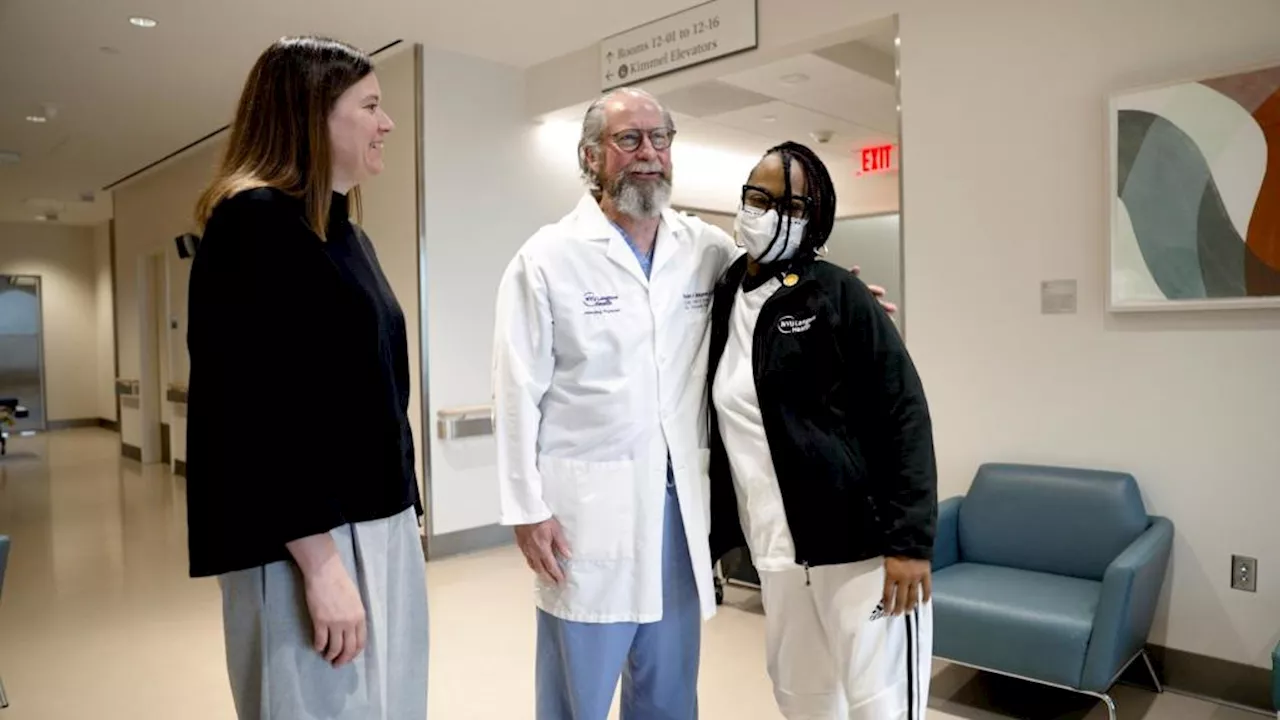 Woman Receives Pig Kidney Transplant, Marking Milestone in XenotransplantationTowana Looney, a 53-year-old woman, received a pig kidney transplant, ending her eight years of dialysis. This groundbreaking surgery is considered a significant step towards using animal organs for human transplantation. Doctors expect Looney to make a full recovery and return home in three months. This historic procedure marks an important step in xenotransplantation research, with formal studies expected to begin next year.
Woman Receives Pig Kidney Transplant, Marking Milestone in XenotransplantationTowana Looney, a 53-year-old woman, received a pig kidney transplant, ending her eight years of dialysis. This groundbreaking surgery is considered a significant step towards using animal organs for human transplantation. Doctors expect Looney to make a full recovery and return home in three months. This historic procedure marks an important step in xenotransplantation research, with formal studies expected to begin next year.
Read more »
